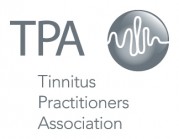There Is Something That Can Be Done About Tinnitus!
Whether it sounds like roaring, ringing, pulsing, or crickets, tinnitus can be tormenting. Tinnitus is the perception of sound inside the head that is not present in the environment. It is not a disease. Tinnitus is subjective and very common in the general population. It can be a symptom of a medical condition or acoustic trauma, or…… it can be just annoyingly present for no obvious reason. Medical conditions associated with tinnitus may include Meniere’s disease, diabetes, TMJ syndrome, high blood pressure, cardiovascular disease, acoustic neuroma, substance abuse, and side effects of prescription medications. Exposure to intense noise, acoustic trauma from explosives, barotrauma, impacted wax, whiplash, stress are also associated with tinnitus. It is very common to experience tinnitus and hearing loss.
Many people have lost hope as they were repeatedly told that there is nothing that can be done about tinnitus. There is hope and we have effective solutions. We begin by evaluating potential contributors to tinnitus. In combination with a Hearing Evaluation, a Tinnitus Evaluation will shed light on how the tinnitus began, what medications you are taking, how it has impacted your sleep, your perception of the tinnitus, your stress levels, your diet, your medical history, and how it affects your family relationships.
Prevalence of Chronic Tinnitus

Sound Therapy for Tinnitus
When the ear is not working properly, the cognitive part of the brain has to work harder to make sense of input with missing information. Dealing with missing or distorted input adds to your daily stress and fatigue. Imagine putting on a 50-pound backpack and carrying it everywhere you go. You could probably do it, but you would feel very fatigued at the end of the day.
A direct link between sound and survival is built into our magnificent brains. Whether asleep or awake, the ear and the brain work together to constantly monitor the environment for potential threats to safety and well-being. When the brain does not receive sound stimulation from the environment, as in hearing loss, a phantom sound can be perceived.
Binaural (meaning both ears) hearing instruments are very effective in treating tinnitus even when hearing is normal and even when tinnitus is only perceived in one ear. Tinnitus sound generators give the brain something to focus on besides the tinnitus. Normal conversational speech is still understood while wearing tinnitus sound generators. Sound therapy goals are to cause the tinnitus to be reassigned to the background and to reroute the emotional response to the phantom sound. The goal is not to mask the tinnitus, because research indicates that masking is not effective over time.
Common difficulties that arise from living with tinnitus may include: sleeplessness, anxiety, fear, irritability, inability to concentrate, confusion, fatigue, drug dependence, alienation, headaches, despair, and/or depression. Men tend to be subject to tinnitus more than women. Stress is critical factor which shifts tinnitus from annoyance to despair.
Because tinnitus involves the ear, the mind, and the brain, a comprehensive treatment plan is necessary. Dr. Taylor uses Cognitive Habituation Tinnitus Treatment (CHaTT) which combines the latest and most effective tools for managing tinnitus. The CHaTT program was developed by Dr. Natan Bauman, a world-renowned practitioner, researcher, inventor, and engineer in the field of tinnitus and sound sensitivity.
Hearing instruments take cognitive and emotional load off the brain by providing consistent, accurate sound that can keep you safe, confident, and at peace as you deal with tinnitus. With more accurate, predictable sound fed to your brain, the tinnitus fades to the background. Think of your refrigerator’s hum. You may notice it when you first get a new one, but the sound soon becomes unimportant as your brain assigns it to the background. This phenomenon is called habituation. If you focus on the refrigerator, you will hear it; but if you don’t focus on the hum, you hear the sounds that are important at the moment like, “Dinner’s ready!”
Tinnitus is Subjective
Ask two people to evaluate a song and you will get two different interpretations depending on the cultural background, rhythm, tempo, vocals, instruments, and associated memory. People may also experience relief from tinnitus by relaxing with soothing sounds that are peculiar to their preference. Overall, music is a very powerful and effective tool for contolling the stress response to tinnitus.
The latest innovations in hearing instruments empower you to access a world of apps with all kinds of sounds that stream directly to the ears. Relief can be experienced with a smart phone, two hearing instruments, and a couple of free downloads from the app store. We will:
- Fit you with the right hearing instruments for sound therapy and easier hearing.
- Link them directly to your smart phone.
- Guide you to apps we know are effective in relieving tinnitus.
- Walk the journey with you until you find relief from tinnitus.
There are many options to help you, and we know what and where they are. So if you or someone you know suffers from the torment of tinnitus, call us at (940) 387-3330 to discover how Colorful Hearing can deliver relief.








